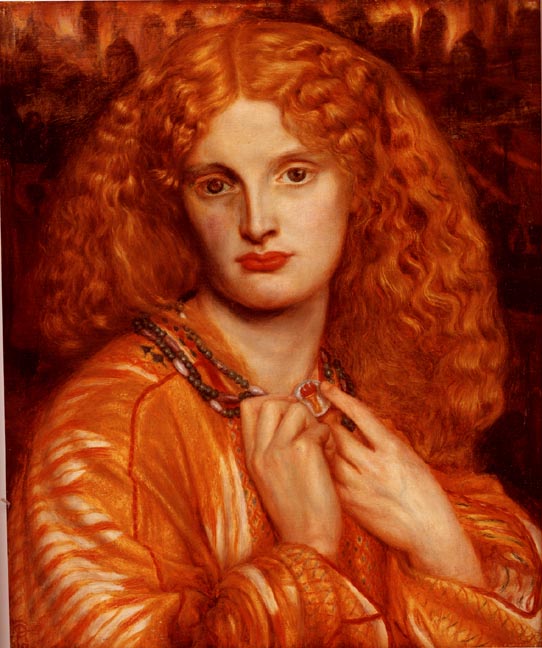Film Friday
I recently came across this Judy Grahn poem about Helen of Troy going to Hollywood. Or to put it another way, our Jean Harlows, Judy Hollidays, and Marilyn Monroes are American Helens. Like Belinda in Pope’s Rape of the Lock, Hollywood Helen isn’t the result of cosmetics (“Max Factor didn’t make her”). Such women radiate something that neither Grahn nor Pope can account for.
I like how “Helen in Hollywood” explores our attraction, how our Helens become “mediums for our energy” and “metaphors for living in America.” We are drawn to a “luminescent glow” that is “other than we.”
Or we think it is other than we. But the star is a mirror as well as a chandelier. Our Helens confirm for us that that something intangible within us can manifest itself in the world. Its universality is affirmed by the way that it shows up in “princess and harlequin, athlete and moll and whore and lady.”
As a result, we engage in a complicated dance with stars. We adore, envy, admire, neglect, scorn, leave alone, invade, and fill ourselves with them. Our adulation can even kill our stars if they aren’t careful.
But it’s not that the longing is superficial, even though we often respond to it in superficial ways. All of us together are caught up in this desire for transcendence. Grahn’s poem is an articulation of our desire:
Helen in Hollywood
Judy Grahn
When she goes to Hollywood
she is an angel.
She writes in red red lipstick
on the window of her body,
long for me, oh need me!
Parts her lips like a lotus.
Opening night she stands, poised
on her carpet, luminescent,
young men humming
all around her. She is flying.
Her high heels are wands, her
furs electric. Her bracelets
flashing. How completely
dazzling her complexion,
how vibrant her hair and eyes,
how brilliant the glow that spreads
four full feet around her.
She is totally self conscious
self contained
self centered,
caught in the blazing central eye
of our attention.
We infuse her.
Fans, we wave at her
like handmaids, unabashedly,
we crowd on tiptoe pressed together
just to feel the fission of the star
that lives on earth,
the bright, the angel sun
the luminescent glow of someone
other than we.
Look! Look! She is different.
Medium for all our energy
as we pour it through her.
Vessel of light,
Her flesh is like flax,
a living fiber.
She is the symbol of our dreams and fears
and bloody visions, all
our metaphors for living in America.
Harlow, Holliday, Monroe
Helen
When she goes to Hollywood
she is the fire for all purposes.
Her flesh is like dark wax, a candle.
She is from any place or class.
“That’s the one,” we say in instant recognition,
because our breath is taken by her beauty,
or what we call her beauty.
She is glowing from every pore.
we adore her. we imitate and rob her
adulate envy
admire neglect
scorn. leave alone
invade, fill
ourselves with her.
we love her, we say
and if she isn’t careful
we may even kill her.
Opening night
she lands on her carpet,
long fingered hands
like divining rods
bobbing and drawing the strands
of our attention,
as limousine drivers in blue jackets
stand on the hoods of their cars
to see the angel, talking
Davis, Dietrich, Wood
Tyson, Taylor, Gabor
Helen, when she goes to Hollywood
to be a walking star,
to be an actor
She is far more that a product
of Max Factor,
Max Factor didn’t make her
though the make-up helps us
see what we would like
to take her for
her flesh is like glass,
a chandelier
a mirror
Harlow, Holliday, Monroe
Helen
when she went to Hollywood
to be an angel
And it is she and not we
who is different
She who marries the crown prince
who leads the processional dance,
she who sweeps eternally
down the steps
in her long round gown.
A leaping, laughing leading lady,
she is our flower.
It is she who lies strangled
in the bell tower;
she who is monumentally drunk and suicidal
or locked waiting in the high tower,
she who lies sweating with the vicious jungle fever,
who leaps from her blue window
when he will, if he will, leave her
it is she and not we
who is the lotus
It is she with the lilies in her hair
and a keyboard beside her,
the dark flesh glowing
She whose wet lips nearly swallow
the microphone, whose whiskey voice
is precise and sultry and overwhelming,
she who is princess and harlequin,
athlete and moll and whore and lady,
goddess of the silver screen
the only original American queen
and Helen
when she was an angel
when she went to Hollywood
Note: In the versions of this poem I have found on the internet, Jean Harlow’s and Judy Holliday’s names were misspelt. I don’t know if this is an internet mistake, a deliberate choice on the part of the author, or a mistake on the part of the author. I corrected them because I assumed the first or the third–I couldn’t see any poetic point in a deliberate misspelling–but I may have stepped over the line in doing so. As I would be, say, if I changed Cortez to Balboa in Keats’s sonnet “On First Reading Chapman’s Homer”:
“Or like stout Cortez who, with eagle eyes,
Stared at the Pacific, while all his men
Gazed at each other with a wild surmise
Silent upon a peak in Darien.”
Go here to subscribe to the weekly newsletter summarizing the week’s posts. Your e-mail address will be kept confidential.


